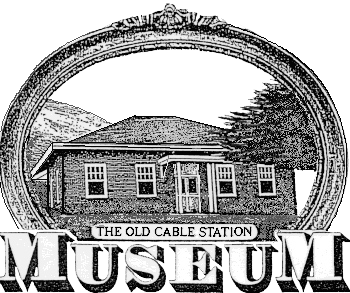Apollo Bay & District Historical Society
Apollo Bay - The First 100 Years of White Settlement
| Year | Event |
|---|---|
|
1800 |
First recorded sighting of the area is made by Lieutenant Grant on 8 December 1800 on his voyage through Bass Strait in the Lady Nelson. |
|
1800s |
First landings on the shores of the bay are attributed to sealers and whalers operating in Bass Strait in the 1800s. |
|
1836 |
Gellibrand and Hesse are the first white men to penetrate the Otway Ranges. They disappear without trace the following year while still in the Otways. |
|
1845 |
Captain Loutit on a trading voyage to Portland in the schooner Apollo shelters here from a south-westerly gale and names the place Apollo Bay. |
|
1845 |
The first survey of the coast from Port Phillip to Cape Otway is made by surveyor George Douglas Smythe using a rowing boat and charging 30 shillings per mile for the survey. |
|
1845 |
The first overland route, a 1.2 metre-wide bridal path, to the Apollo Bay area is made by William Roadknight and his son Thomas, who drive cattle through the bush from Birregurra to their run on Cape Otway. |
|
1848 |
The lighthouse at Cape Otway is completed and the light lit on 14 August 1848, remaining in service until 1964. |
|
1849 |
The first settlers in the area are timber cutters who come to harvest the magnificent Blue Gum and Mountain Ash trees, which grow up to 40 metres high and over a 1 metre in diameter. These were dragged down to the beach, floated through the surf, and loaded aboard the small ships anchored off-shore. |
|
1851 |
The timber cutters settlement on Apollo Bay is destroyed by bushfire on 6 February 1851, Black Thursday, when much of Victoria is devastated by fire. |
|
1851 |
Victoria becomes a separate colony. A census held this year shows 229 people resident in Apollo Bay and Cape Otway area. |
|
1852 |
The first sawmill is built on Clyne’s Creek (now Milford Creek) by a Mr. Lindsay from Geelong. |
|
1853 |
Skene surveys an area to be known as Middleton township and forwards it to the Governor-in-Council. |
|
1853 |
A dam is built on the Barham River with a water race transporting water to a second sawmill where it is used to drive a Pelton wheel. As the stream flow is unreliable the mill is soon converted to steam. |
|
1854 |
The Brigantine Anna of 140 tons becomes the first ship wrecked in Apollo Bay. On 29 July 1854 she drags her anchors into the surf during a gale. |
|
1855 |
The first jetty is built on Point Bunbury in the vicinity of the present boat ramp. |
|
1864 |
The first farm is established by Mr. John Cawood who settled a piece of land cleared to provide grazing for the bullocks used to haul logs to the mills. Cawood fattened cattle and then drove them through the bush for up to three days to market at Birregurra. |
|
1868 |
The first titles to land are issued. |
|
1873 |
Two members of the Coal Board arrived to check out coal seams but the terrain is difficult, the scrub and gullies are impenetrable, and the seams not a viable proposition. |
|
1873 |
The narrow track into Apollo Bay is widened and the first wheeled-vehicle is driven over the Otways. It takes four horses to pull the empty two-wheeler. |
|
1874 |
Following a new survey the town has a name change from Middleton to Krambruk. |
|
1877 |
Surveyed land is thrown open for selection. 30 township and half-acre sites are sold. |
|
1879 |
The first school is established following a petition to the Minister for Education on 2 December 1878. |
|
1880 |
The first meeting of a committee to run the Recreation Reserve is held on 13 October 1880. |
|
1882 |
Apollo becomes the first boat built and launched in Apollo Bay using timber from the remains of Eric the Red, being constructed by Mr. Burgess. |
|
1884 |
After many years of burying the dead in the churchyard the first cemetery is established. |
|
1885 |
32 perches of land on the corner of Sylvester and Nelson Streets are reserved as a site for a public library. |
|
1886 |
Telegraph services are provided from the post office. |
|
1888 |
A company is registered to mine coal in the Wild Dog Creek and commences operation. |
|
1889 |
A coach service is commenced between Apollo Bay and Birregurra. The first coaches take two days to arrive, being pulled by only one change of horses. |
|
1890 |
The first butter factory is built. It proves a failure. |
|
1891 |
A police watch-house is erected in Apollo Bay. |
|
1896 |
Plans are approved for the construction of a bridge across Skenes Creek. |
|
1898 |
Krambruk becomes Apollo Bay on 2 May 1898. By now there are three means of communication with Apollo Bay – a weekly boat service; coach to Forrest and then the railway line; and the telegraph. Apollo Bay is becoming part of the world. |
